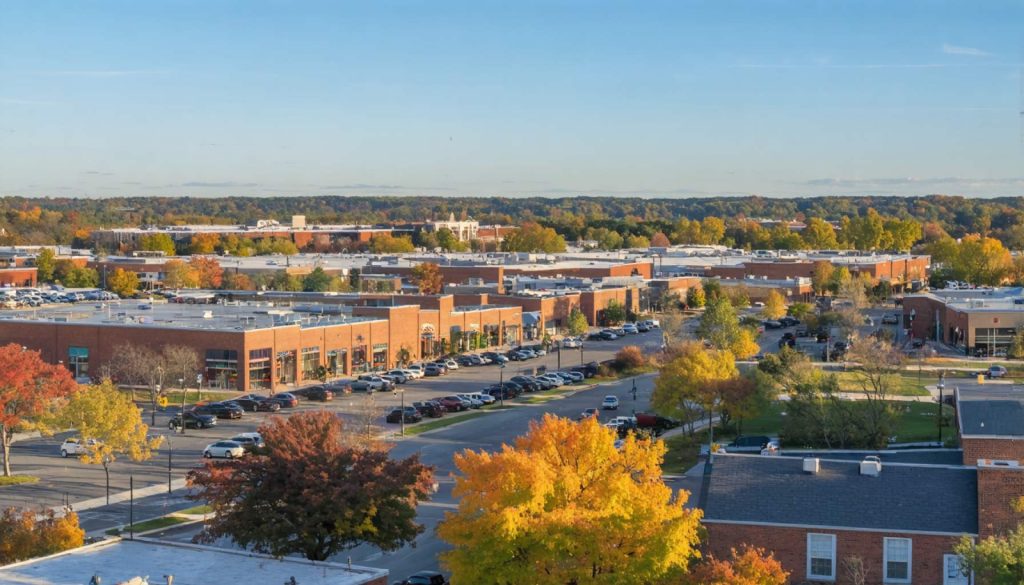
- The Black River Innovation Campus (BRIC) is transforming the historic Park Street schoolhouse in Springfield, Vermont, into an innovation hub for entrepreneurs.
- A $7.2 million renovation blends historic charm with modern functionality, creating spaces for tech and business innovation.
- BRIC offers the Actuator curriculum, an eight-week entrepreneurial program drawing participants from large cities, promoting collaboration over competition.
- Partnership with Google provides certifications in digital skills such as data analytics and cybersecurity, bridging the digital divide.
- The focus on social entrepreneurship aligns with Vermont values, integrating social responsibility with business goals.
- Youth programs, including Lego Robotics, foster future innovators, ensuring generational creativity and leadership.
- The Cultivator program expands BRIC’s impact regionally, offering entrepreneurial training and coworking opportunities.
- Springfield’s transformation highlights the potential of small towns as creative epicenters, embodying Vermont’s spirit of collaboration and innovation.
In the heart of Springfield, Vermont, a bold transformation unfolds. The historic Park Street schoolhouse, a relic of the 19th century, is being reimagined as a hub of innovation by the Black River Innovation Campus (BRIC). This ambition is more than a renovation project; it’s a beacon of opportunity for budding entrepreneurs seeking to invigorate the local economy.
BRIC’s mission is clear: create a nurturing environment where entrepreneurship can thrive amidst the charm of Vermont’s small-town atmosphere. The organization is overseeing a $7.2 million facelift of the storied school, built in 1895, now poised to welcome the next generation of tech dreamers. Stripping the past of asbestos and outdated wiring, the renovation will blend historical charm with modern functionality, reviving spaces like the gymnasium and its 500-seat theater with acoustics so crisp that a whisper carries.
But bricks and mortar alone don’t build ecosystems. BRIC’s true innovation lies in its programs — the lifeblood for local and aspiring entrepreneurs. The Actuator curriculum is an eight-week crucible of business acumen, drawing learners from as far as Boston and New York. Participants delve into areas from software development to culinary ventures, embracing Vermont’s community spirit where collaboration trumps competition.
Integral to BRIC’s impact is its partnership with tech giant Google, offering certifications in six digital domains including data analytics and cybersecurity. By empowering the workforce with tech skills, BRIC helps bridge the digital divide, making professional growth accessible to many.
Vermont offers more than quaint landscapes; it provides a fertile ground for social enterprises. Many Actuator alumni have woven social responsibility into their business blueprints. This focus resonates with Vermont’s values, where community groundwork is as vital as profit margins.
BRIC’s initiatives extend to youth, nurturing future leaders through hands-on STEAM programs. By equipping educators with tools like Lego Robotics kits, the organization inspires the next wave of innovators, ensuring Springfield remains a cradle of creativity.
The venture doesn’t stop here. BRIC’s sister endeavor, Cultivator, reaches into the Randolph area, offering entrepreneurial training and coworking collaborations. Through the Built to Scale Venture Challenge grant, Cultivator nurtures Vermont’s entrepreneurial pulse, cultivating a network infused with passion and purpose.
BRIC’s sweeping vision underlines a powerful takeaway: small towns, often underestimated, are fertile grounds for pioneering ideas. As Springfield reinvents itself, it embodies the spirit of a community where legacy meets innovation, demonstrating that even the smallest towns can harbor the grandest dreams.
This renaissance heralds a simple yet profound message: Vermont is more than maple syrup and picturesque landscapes. It’s a flourishing ecosystem fostering collaboration and innovation, proving its moniker as “small but mighty” truer than ever.
The Remarkable Revival of Vermont’s Park Street Schoolhouse: A Tech Haven in the Making
The Transformation of Historic Spaces into Innovation Hubs
In Springfield, Vermont, the Black River Innovation Campus (BRIC) is spearheading the transformation of the 19th-century Park Street schoolhouse into a dynamic center for entrepreneurship and tech innovation. This $7.2 million project not only revitalizes a historic structure but also serves as a catalyst for economic growth in the area.
Unpacking BRIC’s Ambitious Vision
BRIC’s mission extends beyond mere infrastructure renovation. Through a robust set of programs and strategic partnerships, it aims to create a nurturing environment where small-town charm meets cutting-edge innovation. Let’s explore some additional facets of this initiative and the broader context:
1. How BRIC Supports Entrepreneurs
– Actuator Curriculum: This intensive eight-week program equips participants with vital business skills. Beyond software and tech, it embraces a diverse range of industries, fostering a communal spirit where collaboration outshines competition.
– Google Partnership: By offering certifications in crucial areas like data analytics and cybersecurity, BRIC addresses the growing demand for tech-savvy professionals and helps close the digital skills gap.
2. Real-World Use Cases and Success Stories
BRIC alumni often incorporate social responsibility into their ventures, reflecting Vermont’s community-focused ethos. Businesses born from BRIC initiatives have made strides in integrating sustainable practices, contributing to the state’s identity as a leader in social enterprise.
3. Expanding the Ecosystem with Youth Programs
BRIC is not just focusing on current entrepreneurs but also on future innovators. By embedding STEAM (Science, Technology, Engineering, Arts, and Mathematics) programs in local schools, BRIC ensures that young minds are inspired and equipped to contribute to Vermont’s entrepreneurial landscape.
Market Forecasts and Industry Trends
The drive to integrate historic structures with modern innovation reflects a broader industry trend favoring sustainable and community-focused developments. As more rural areas harness tech to fuel local economies, Vermont’s approach could serve as a model for similar regions, turning underutilized historic sites into economic assets.
Controversies and Challenges
Despite the enthusiasm, such initiatives are not without challenges. Ensuring sustained engagement from local communities and balancing modernization with historical preservation can be complex. Financial viability and long-term impact remain key considerations.
Pros and Cons Overview
Pros:
– Revives local architecture with a modern twist.
– Fosters community and economic growth.
– Provides tech education and certification opportunities at a local level.
Cons:
– High renovation and operational costs.
– Risk of unequal access if not managed inclusively.
Actionable Recommendations for Aspiring Entrepreneurs
– Leverage Certifications: Utilize affordable certification programs, such as those offered through BRIC’s partnership with Google, to enhance your technical expertise.
– Network Actively: Engage in community-based programs to build a support system that fosters collaboration.
– Embrace Sustainability: Incorporate social responsibility into your business model, aligning with Vermont’s values.
For more on innovation campus initiatives, visit BRIC’s official website.
In conclusion, the revival of the Park Street schoolhouse is a testament to the potential of small towns to serve as incubators for ambitious ideas. As BRIC continues to transform Springfield, it challenges commonly held perceptions about the limits of rural innovation, inviting a new era where heritage and future-tech walk hand in hand.



